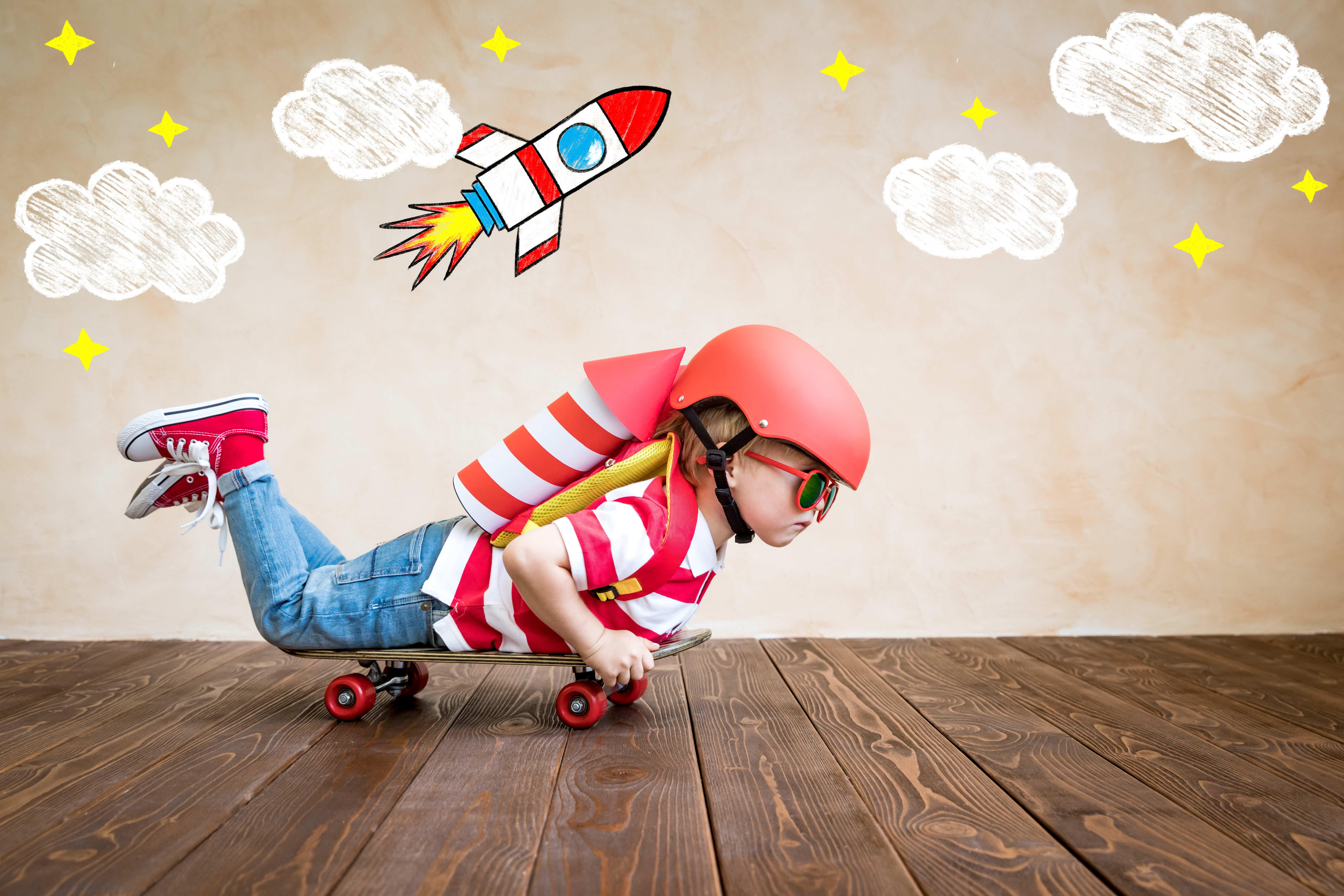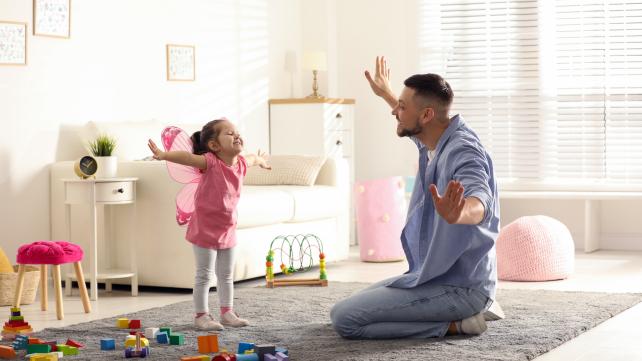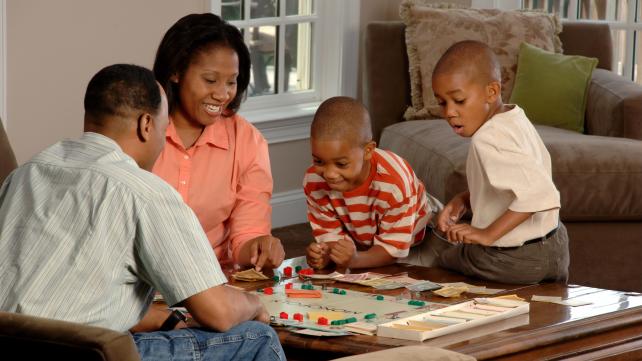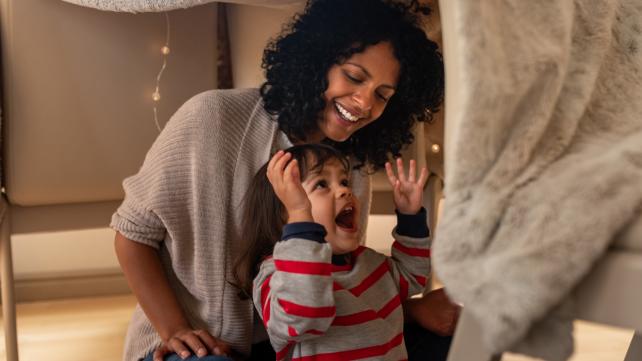|  | Nurturing the Next Generation
Sound Vision |
|
|
| |  | Recognizing the Importance of Play By Zahirah Lynn Eppard As you work to develop schedules to manage time and learning throughout the day, be sure to factor in play. Especially for young children, play is a primary vehicle for learning. It creates opportunities for self-discovery, nurtures social connections, provides space to explore new ideas, helps to develop imagination, and solidifies speaking and listening skills. In play, children are able to self-direct and do so generally in accordance with developmental readiness (no need to consult a textbook here!).
There are five elements that are necessary for play to be play. - Children make their own decisions.
- Children are intrinsically motivated.
- Children become immersed in the moment.
- Play is spontaneous, not scripted.
- Play is enjoyable.
Get more details by reading further. |
| | | Parenting Tip Consciously make time for play in your child’s daily routine. When it is truly play, the benefits will come quite naturally. |
| |  | Inspiring the Imagination By Wendy Diaz The benefits of a child's imaginative play have been well researched and documented. Muslim parents can also be inspired by the practices of Prophet Muhammad, peace and blessings be upon him, who encouraged this special connection with children over 1,400 years ago. Here are five ways to encourage imaginative play with your child. - Be an active participant in pretend play with your child(ren).
- Be patient as they explore their imaginary world.
- Ask questions and engage them in conversation about their pretend play.
- Never belittle something they feel strongly about.
- Make imagination competitive.
Read further to find out how each one was implemented by our Prophet. |
| | | Inspiration “Children learn as they play. Most importantly in play, children learn how to learn.”
O. Fred Donaldson, Ph.D., play researcher |
| |  | Fostering Children's Intelligence through Play By Umm Ahmed Every child is born with 100 billion neurons. These neurons are like electrical connections in the brain which allow the brain to respond and function. Play and physical movements allow the brain to: - recognize objects, things, and experiences
- reason with relevance, and
- understand different situations and respond accordingly.
Find out more about research on play and how important it is to your child’s healthy physical and emotional development. |
| | |
|
|
Anas ibn Malik (may Allah be pleased with him) narrated: “I never saw anyone who was more compassionate towards children than Allah’s Messenger (peace and blessings be upon him). His son Ibrahim was in the care of a wet nurse in the hills around Madinah. He would go there, and we would go with him, and he would enter the house, pick up his son and kiss him, then come back.”
(Muslim) |
| |  | Exploring the World through Repetition By Zahirah Lynn Eppard Children quite naturally engage in repetitive behavior. While parents may routinely observe these behaviors in everyday activities, it is important to understand how critical they are to healthy human development. Find out more about eight types of schematic play and how you can support the learning that takes place from these activities. |
| | | Parenting Stats 1 in 5 children in the U.S. live within walking distance of a park or playground (Centers for Disease Control). A child is five times more likely to be a healthy weight if there is a park or playground within a half mile, compared to children without a nearby playspace (Singh). In neighborhoods without a park or playground, 29% of children are obese. The U.S. Department of Health and Human Services recommends 60 minutes of daily physical activity for young people aged 6-17. The average child aged 8 to 18 spends 7.5 hours a day on entertainment media. When factoring in media multitasking and using multiple forms of media simultaneously, children actually pack in nearly 11 hours of media use daily (Kaiser Family Foundation). In 1980, 7% of U.S. children aged 6-11 years were obese. In 2018, it was over 20%. |
| | Online Resources The Good Toy Guide - This resource was founded by child development expert Dr. Amanda Gummer to provide an independent, expert accreditation service for children’s products for both parents and educators. Hands On: As We Grow - Simple hands-on activities that can create fun-filled moments of learning with your children from baby to grade school. Childhood 101 - A place for playful learning ideas for teachers and parents.
A collection of Islamic activities - Ameena Saleem’s pinterest page is filled with a wide variety of activities for Muslim kids of all ages. |
|  | WATCH: Red Riding Hood Adam tells the tale of Red Riding Hood with a contemporary twist! He and Aneesah are taking a basket of goodies to Grandma’s house when a walk through the woods takes an unusual turn. Find out how playing superheroes and Grandma’s quick thinking outsmart the world and save the day! |
| | |
|
|  | The Sound Vision Foundation has been a trusted source of Islamic knowledge for more than 30 years. Our work with the world-renowned puppets Adam and Aneesah pioneered creative programming for Muslim children, encouraging them to learn about and love their religion. We continue to bring sound content and engaging programs that stimulate minds, touch hearts, and strive to fulfill our mission of raising better Muslims, better neighbors, and better citizens. This latest effort is designed to support and empower Muslim parents to do the same. |
| | | |
|
| |
|
|







